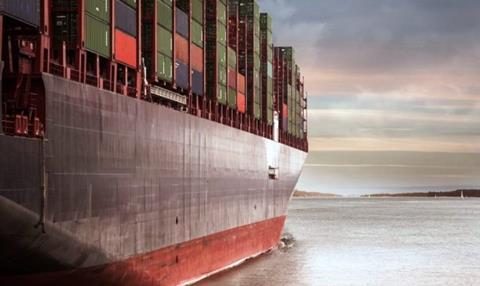Trade bodies from across the UK meat industry have responded to a government statement announcing the further delay of import controls on EU goods, with mixed opinions.

The delay announced by the government this week will affect the introduction of full SPS checks and the introduction of certification for imports from the EU. The government statement said that no further import controls on EU goods will be introduced this year and businesses can stop their preparations for July for now.
A new regime of border import controls, the Target Operating Model, will be published in the Autumn and will target the end of 2023 as a new introduction date. The controls that have already been introduced will remain in place.
Commenting on the announcement, CEO of the International Meat Trade Association (IMTA) Katie Doherty said: “Though I know some will be frustrated about yet another delay, I know that with all the current supply chain pressures that for many this delay will be welcome.”
The British Meat Processors Association (BMPA) said that, after months of uncertainty, it is “relieved to have the clarity that border checks will not now be implemented on 1 July.”
It added, however, that the decision is “a real double edged sword for British businesses.” BMPA said: “On the one hand it makes importing the one quarter of food that stocks UK supermarket shelves cheaper and easier to get into the country. But this comes with risks.
Gross neglect
The Scottish Association of Meat Wholesalers (SAMW) said UK government were “dithering” on the implementation of Sanitary and Phytosanitary (SPS) controls, which are needed to protect both public and animal health relating to meat imports. It added that the delay would expose “Scotland’s beleaguered pig sector to potentially devastating disease risks.”
SAMW executive manager Martin Morgan said that unchecked imports are adding to “the very real threat” of African Swine Fever (ASF) being introduced into the UK from infected stock sourced from Europe, or via people bringing contaminated pork products into the country.
He said: “The UK government’s decision to once again delay the full implementation of import controls, possibly until next year, is a gross neglect of the health of the Scottish pig industry.
“Pig producers urgently need their national government to step up and take action on this issue. Otherwise, we could easily be facing catastrophic problems.”
An unacceptable approach
The National Farmers’ Union (NFU) has called the government’s decision not to implement the planned controls on imported food and agricultural products “unacceptable” and said it will result in “another significant blow” for British farm businesses already facing unprecedented rising costs.
NFU president Minette Batters said: “It is astounding that the government is taking such an unacceptable approach to critical checks for agri-food imports from the EU. These checks are absolutely crucial to the nation’s biosecurity, animal health and food safety and without them we really do leave ourselves at risk.
“For the introduction of these checks to have been delayed three times was bad enough but to now have them essentially scrapped in favour of an unknown system is unacceptable.”
She added: “This is a question of fairness. Our producers have to meet stringent controls to export their own products abroad, all while being left at a continued competitive disadvantage to our EU competitors, who are still enjoying an extended grace period which gives them access to the prized UK market relatively cost and burden free.”
A real danger
Chief executive of the National Sheep Association (NSA) Phil Stocker expressed his concern about the announcement. He said: “There is a real danger, we are paving the way for an unlevel playing field when it comes to trade, which is putting greater pressure on UK producers at an extremely volatile period of time for the industry.
He added: “If the government continues to put this sort of pressure on our farming businesses at the same time as having to fight an uphill battle with rising input costs, we could well be heading towards a food security crisis with impacts for dietary health.”
Costly disparity
According to the British Poultry Council (BPC), a repeated failure to implement full controls on product entering the UK from the EU will cost British poultry meat businesses millions as they “continue to absorb costly disparity” in cross-Channel trade.
BPC chief executive Richard Griffiths said: “Mr Rees-Mogg suggests it is ‘wrong’ to introduce controls in July, but today’s announcement simply proves that this government is not concerned with the rights and wrongs of fair UK-EU trade. Of course, we are going to be ‘the world’s best border’ when we don’t check what comes in!
“To say that ‘businesses can stop their preparations for July now,’ as if you are doing exporters a favour, completely negates the reality that most of our current supply chain stress stems from the costly disparity of EU-UK trade. EU traders face a commercial advantage with no checks and can now expect that luxury until late 2023.”
This story was originally published on a previous version of the Meat Management website and so there may be some missing images and formatting issues.












